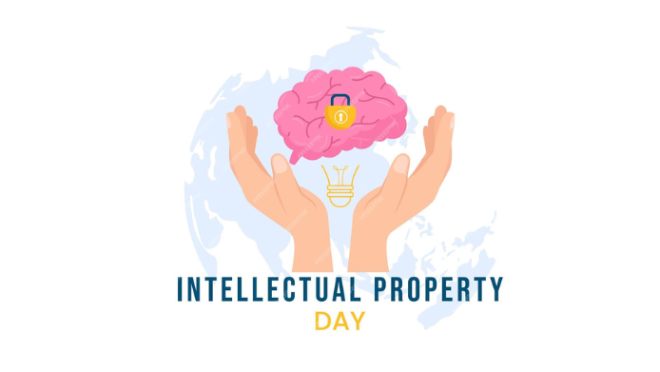Does Bangladesh implement intellectual property laws?
Does Bangladesh implement intellectual property laws?

26 April is World Intellectual Property Day. Creative works of the mind that are legally protected are referred to as intellectual property (IP), which grants creators the sole right to their inventions, artwork, symbols, and ideas. By guaranteeing that creators may profit from their work, intellectual property promotes innovation and creativity.
A successful outcome of the Uruguay Round in 1994, the Agreement on Trade-Related Aspects of Intellectual Property Rights (TRIPS) (also known as the Marrakesh Agreement, 1994) is the first agreement to address all of the major areas of intellectual property. Strengthening the enforcement of intellectual property rights (IPRs) has emerged as a key topic in several bilateral, regional, and international debates twenty years after the TRIPS agreement entered into effect.
Instead of strengthening intellectual property protection without conducting a realistic assessment of the requirements, risks, and effects of expanding protection, it is actually more important today for developing and least developed nations to preserve and utilise the flexibilities offered by international IP instruments. Bangladesh is no exception to it. As a developing nation, Bangladesh has clear sets of acts regarding intellectual property.
Intellectual Property Types acknowledged in our country –
1. Patents: These safeguard inventions, such as novel machinery and medications.
2. Copyright: This safeguards creative, literary, and musical creations (such as software, songs, and books).
3. Brand names, logos, and phrases (such as “Akij” and “Apex”) are protected by trademarks.
4. Industrial designs: Preserves the items’ beautiful designs (e.g., jewellery, furniture).
5. Geographical Indications (GI): These safeguard goods from a particular area (e.g., Hilsa Fish, Jamdani Saree).
6. Trade secrets: These safeguard private company data, such as formulas and algorithms.
The intellectual property laws in Bangladesh include the Patents and Designs Act, 1911; Copyright Act, 2000; Trademark Act, 2009; Geographical Indications (GI) Act, 2013; and Bangladesh Biodiversity Act, 2017. These laws regulate patents and industrial designs, covering new inventions with industrial applicability and visual design protection.
The Copyright Act, 2000, protects authors, artists, and software developers, covering books, music, films, software, paintings, and architectural works. Key issues include piracy and plagiarism. The Trademark Act, 2009, protects brand names, logos, and slogans, with registration valid for 10 years and renewable indefinitely. Key protections include preventing counterfeit products and unauthorised use of registered marks. The Geographical Indications (GI) Act, 2013, protects products tied to a specific region, such as Jamdani Saree, Hilsa Fish, and Nakshi Kantha. The Bangladesh Biodiversity Act, 2017, protects traditional knowledge and genetic resources, ensuring fair benefit-sharing for indigenous communities and preventing biopiracy.
The Department of Patents, Designs & Trademarks (DPDT) handles patents, trademarks, and designs, while the Copyright Office manages copyright registrations. Some of the time limits related to intellectual property acts are the grant of a patent – valid for 20 years (non-renewable).
Per application, charges are Tk4,000. The grant and renewal would be Tk10,000 (plus annual fees). According to the Trademark Act, 2009 (Amended 2023). The registration is valid for 10 years, renewable indefinitely. Per application Tk6,000 Then according to the Governing Law: Copyright Act, 2000 (Amended 2023), the registration is granted within 3–6 months. The validity is a lifetime + 60 years (individuals) / 60 years from publication (companies). Also, the fee for literary/musical work is Tk2,000. For the software/cinematography, the amount would be Tk5,000.
Bangladesh has a strong legal framework for intellectual property (IP) protection, but enforcement remains weak. Major challenges include weak enforcement, slow legal processes, and lack of awareness among businesses and creators. Having the best intention, we fail to earn and give proper respect to artists as we lack in implementing it.
This year The World Intellectual Property Day (26 April) is observed annually to promote awareness about IP rights and their role in innovation and creativity. The day will be organised by the World Intellectual Property Organisation (WIPO), which encourages discussions on how IP fosters technological, cultural, and economic progress. The theme for World Intellectual Property Day 2025 is “IP and Music: Feel the Beat of IP”, emphasising the role of IP rights in fostering creativity and innovation within the music industry.
Learning from the motto, let’s create a Bangladesh where intellectual property is well reserved and protected. A nation where creativity is cherished and flourished by protecting the intellectual property rights of the owners. Let aware and be aware of how to implement intellectual property laws.


